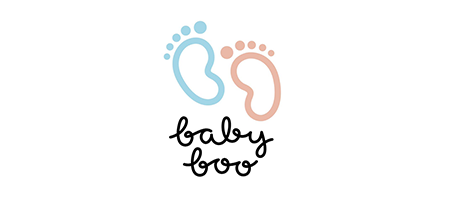Having a second child is often much easier than the first — no fears of the unknown or doubts about how to take care of your baby. But along with this confidence comes a new set of challenges.
Second-time parents can’t devote all their time and energy to the most recent addition to the family.
While they’re still tired after the birth, trying to cope with the housework, missing sleep and settling their new baby into a routine, there is another small child desperate for their attention.
If you can keep your toddler happy, the rest is likely to fall into place. That’s why it’s important to understand your firstborn’s reactions to your new baby.
A little brother or sister can appear very threatening to a toddler. From their perspective, their parents had more time to help, comfort or play with them. They would come at the first cry.
Now, all their attention seems focused on that noisy little bundle, and they are expected to be ‘big’. It is normal for toddlers to blame the ‘intruder’ for this change in their routine.
Sometimes, toddlers will appear to forget how to use a potty or how to feed themselves. Or they will cry as much as your new baby. They are trying to show you that they are still small and helpless. They believe this is the best way to get your attention.
For parents, the new baby’s needs are obvious, and it might seem reasonable to expect the eldest child to wait. But toddlers won’t, so parents of 2 or more children must be resourceful and versatile.
Plan ahead
Planning ahead can prevent many of those ‘baby is taking my place’ feelings. If you intend to change your toddler’s room or furniture, try to do this early in your pregnancy. Explain that you’re doing it because your toddler is growing bigger, not because the new baby will need their cot.
It’s easier if your toddler is already potty trained and can feed and dress themselves without help before your new baby comes home, but don’t worry if this isn’t the case. Remember that your toddler may revert to old habits to attract your attention.
Encourage your toddler to socialise and play with other children, perhaps in a playgroup. This helps your child to develop the social skills they will need to have a good relationship with their new sibling.
Breaking the news
Tell your toddler about the new baby but not too soon. Tell them later in the pregnancy when they can see what is happening.
Help your toddler to get used to the idea of a new baby in the family by talking about ‘our baby’, and looking at baby pictures in albums or magazines. Some parents take their toddlers to visit the maternity ward, or friends with newborns. You could help them to start a scrapbook about babies.
If you are having a hospital birth, start talking about going away to have ‘our baby’ a little before the due date. Explain what arrangements you’ve made for your toddler while you’re in hospital. Children need time to adjust. It’s very important that they feel secure about your return. When you go to hospital, you could ask them to look after something for you until you return, like a favourite book or bag.
Hospital visits
Arranging for your toddler to visit you and your new baby in hospital is a good idea. Toddlers like to see newborns, and maybe touch or hold them, and they love to hear stories about themselves when they were tiny. When your toddler is leaving, you could give them a surprise envelope to open at home or in the car — a great way to avoid difficult goodbyes.
Feeling secure
It’s obvious that handling toddlers wisely can lead to a more peaceful household, but it’s also important for their own wellbeing. Feeling secure and good about themselves is the basis of their self-confidence later in life, and these feelings can be badly shaken if they feel like a ‘nobody’ or a nuisance around the baby.
Toddlers need to continue feeling loved, wanted and important, and there are many small ways to achieve this. Grandparents can be a great help in making toddlers feel special. It also helps if the parent who is not on ‘baby duty’ can focus on the toddler.
Going home
If you’re having a hospital birth, make sure your toddler gets lots of your attention when you come home. Ask someone else to carry your baby while you give your toddler a hug and a cuddle. If their response seems less than enthusiastic, remember that they may be feeling hurt and replaced by someone who seems to be the centre of attention most of the time.
If your friends or relatives visit, you could ask them to pay attention to your toddler, too. Spending time with your toddler is far more important than keeping up with housework. Share games with them and get down to their level — for example, on hands and knees to build blocks, or on your tummy to draw with them.
Remember that all the care in the world will not prevent an older child having strong reactions towards the baby now and then. But with good management, you can help minimise discomfort and attention-seeking behaviour.
Accepting the baby
Toddlers feel important and responsible when they’re allowed to hold a baby. Encourage yours to do so, but keep watch so they don’t accidentally squash or drop the baby. Holding the toddler on your lap while they hold the baby is safest. Show your toddler how to stroke your baby gently with their palm to prevent accidental poking or scratching.
Involving children in caring for the new baby with you lets you spend time with your toddler, and encourages them to see themselves as a big sister or brother with responsibilities.
Safety
Never leave a toddler alone with a baby. They may be tempted to share a biscuit, which could choke the baby, or rock the pram to stop the crying which may overturn it.
It helps to have hook-and-eye catches high up on doors to keep doors closed when you need to. Door barriers are useful too — you can see over them and the baby can get used to household noise, but they keep the toddler out of the baby’s room.











